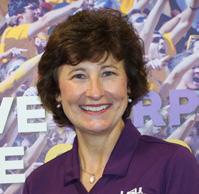
3 minute read
Is Your Staff Crisis Ready?
IS YOUR STAFF CRISIS READY?
GARY WISER & ANGELA GUILLORY
Advertisement
During the last five years, staff within the fraternity/sorority communities at Clemson University and Louisiana State University (LSU) have dealt with crises making national news and heavily influencing industry practice. While many AFA members may never deal with crises ranging from student deaths related to hazing or alcohol to accidents like a floor collapsing during an NPHC social event, it is important to realize every community is one incident away from making national headlines. When dealing with community-wide crises, work rhythm is interrupted and incident management takes precedence. The following strategies may offer a guide for navigating this type of impact within an environment.
Be “Crisis Ready”
This is the most important component for ensuring fraternity/sorority life staff are positioned for success. Work with risk management and compliance staff within the institution or organization to document the strategies in place to mitigate various crises the community could face. Assess the department’s resources and work to ensure there is necessary funding, adequate and appropriate staffing, community prevention educational efforts, and regular and documented assessment of crisis readiness. Assess risk issues within the community to include specific chapters and behaviors. Ask questions like:
• What strategies are used to combat this behavior?
• Where are the strategies written?
• Who knows about the strategies?
• Are educational efforts compiled for easy access?
• Are there metrics and data to discuss when an incident occurs?
Focus on Staff Morale Throughout the Crisis Response
Council advisors and front-line staff receive much of the community’s frustrations during the crisis response, especially when following through with administrative directives. The staff’s work, efforts, and support for the good of the community may be shot down and torn apart — often by the least likely of individuals such as advisors, alumni, and headquarters staff. A common defense mechanism is for people to try to point fingers at individuals deemed responsible for the crisis. When people are frustrated, often they just want to be heard by someone they think is on the front line of it all. The stress, anxiety, and work overload may not come until months following the crisis and often after the brain’s “crisis response” mode turns off. Obsession with reading event details in the media can cause more harm than good when it comes to staff morale. Staff members should wait until they know they are ready to learn the facts and should also be familiar with and open to utilizing campus and/or local resources, if needed.
Know When and What to Communicate
Get clear direction on how the institution or organization wants to educate constituents. The community needs information and guidance, and it is important to communicate often. Do not be afraid to inform, guide, and coach. Report back to the administration on actions and communication — do not wait for them to ask for information. Expect everything staff communicate in writing could go through a FOIA request or be subject to discovery in a legal proceeding. Administrators who are not members of a fraternity or sorority may have a bit of a learning curve. It is important to ask, “What is currently the most important issue to best prepare my supervisors to navigate this?” Partnerships with headquarters staff and alumni are crucial during the communication stage and help foster confidence in leadership.
Conduct a Post-Crisis Evaluation
After the crisis event has concluded, work with the institution or organizational emergency management team to evaluate each step of the process to learn what worked and what needs to improve if/when a similar crisis occurs. This is an important step in helping a team remain crisis ready.

Gary Wiser works at Clemson University as the director for fraternity and sorority life.

Angela Guillory Angela Guillory works at Louisiana State University as the associate dean of students and director of Greek life.








